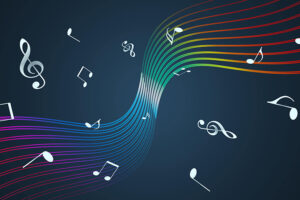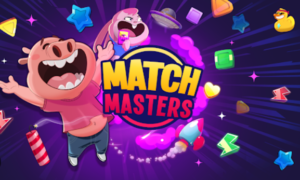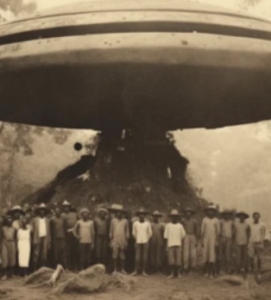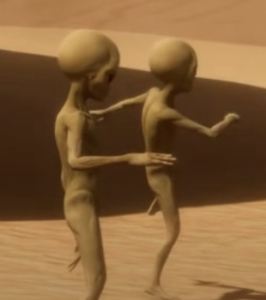What is music/rhythm game music score (rhythm notes) production?

What is music/rhythm game music score (rhythm notes) production?
A variety of so-called music games and rhythm games that can be enjoyed according to the rhythm of music have been released regardless of the hardware such as smartphones, game centers, and home game consoles.
In the game, icons called rhythm notes, shaped like arrows or circles, are displayed in time with the music playing in the background. The more complex Rhythm Notes becomes, the more difficult the game becomes. It’s no exaggeration to say that when it comes to music games, Rhythm Notes’ movements determine the fun of the game.
The design of when and how these rhythm notes are played is called the music game’s “fumen”.
In this article, we will introduce how to create music scores for music and rhythm games.
What is a music/rhythm game?
Music games refer to musical games'' in which players earn scores by playing instruments in synchronization with the rhythm of music or by pressing buttons at the right time. It is also called arhythm game” because of the rhythmic controls, and a “rhythm action game” because it is a game where you perform actions in sync with the music.
There are a wide variety of music games, including arcade games that can be enjoyed at game centers, games that can be played on home game consoles and PCs, and app games for smartphones that have become mainstream in recent years. The actions vary depending on the game, and there are a variety of controllers, including smartphone touch controls, keyboards, Japanese drums, and guitars.
The appeal of music and rhythm games
The appeal of music games is that you can experience music through the simulation of playing musical instruments.
Also, many music games have level settings, and the musical score that is played differs depending on the difficult song or stage. Each time you clear a difficult score, you will experience a sense of exhilaration and accomplishment, and you will be able to realize your personal growth.
Another appeal is that you can explore unknown music through games.
Whether or not a player can enjoy a music game can be said to depend on the system of the music game and the musical score of each song. The fun of music games comes from finding ways to operate them with natural finger and body movements, and arranging music scores that can be synchronized with the music.
What is the musical score (Rhythm Notes) for music/rhythm games?
Normally, when playing music, you look at a score (score) and play, so music games also have something called a score. Here, we will introduce music scores (rhythm notes) for music games.
notes
Notes are rhythm icons such as arrows (←↓↑→) and shapes (〇△◇×) that appear during the game and hit at the right time in music and rhythm games. A musical score is constructed by arranging notes according to the music.
Notes shapes vary depending on the music game, and some have in-game options that allow you to change the shape and color. Also, when playing music games, icons of various shapes may flow along with the music, and some may have action instructions such as tap, flick, or long press.
To create music games that gamers can enjoy. The structure of this “Notes” is very important.
What is musical score production for music/rhythm games?
Here, we will introduce how Notes music sheet production works.
Music game score production is different from composing music; it involves listening to a song and expressing the various elements that make up the song, such as the sound, instruments, rhythm, lyrics, and the creator’s thoughts, through the type, shape, and arrangement of the notes. .
When it comes to musical scores for music games, it is important to create scores that game users find enjoyable. Therefore, while thinking about the scale to match the music, I place the notes keeping in mind the timing and what kind of notes should be placed so that people can enjoy it, as well as the appearance and playfulness.
Features of songs include placing notes in succession for songs with a fast tempo, placing long-pressed notes at the climax of the song, and placing notes with complicated operations such as flicking, long-pressing, and tapping. It is important to be aware of the music score that matches the music.
Process of requesting musical score production for a music game
There are two main ways to request musical score production: requesting an individual or requesting a production company.
The process for making a request to an individual is as follows.
Determine the person in charge of production (individual) for each song
Listen to songs and create a base for your score
Brush up music score work
Final check of score quality
If you are making a request to an individual, this flow will need to be communicated between the game development company and each client. When requesting a production company, this process can be requested all at once, which greatly reduces the burden. Another advantage is that complex exchanges regarding rights can be handled smoothly.
Additionally, some production companies have a track record of producing music scores for various types of music games, and multi-faceted production companies have a comprehensive range of services including development other than music scores, production of still illustration materials, and promotional music videos. You can request it.
Furthermore, it is not uncommon for production companies to have many professional musicians and composers who are hobbyists in music games, or for the director himself to be a veteran music gamer, so both creators and directors have a player’s perspective. You can trust us with confidence in terms of quality.
Key points for creating musical scores for music and rhythm games
Now that you know how to create music scores for music games, we will introduce the key points of creating music scores.
Incorporate mechanisms tied to memorable words in the lyrics
Music scores are an essential part of music games. It is important to create a score that brings out the maximum appeal of a song, such as by expressing it in notes while considering the appearance and playfulness, such as the characteristic fonts and expressions that appear in the song’s music video, and the memorable words in the lyrics.
While playing, try to get into the rhythm of the song.
The music games on smartphones that have become popular in recent years are basically designed to be played by holding the smartphone horizontally and playing with the left and right thumbs. When creating a score, you need to keep in mind that the user will be playing it and will be able to get into the rhythm of the song.
If you are a gamer, you may play using not only your left and right thumbs, but also your other fingers. However, it is a good idea to think about the user group that actually plays music games and create music scores aimed at the core user group of music games.
In addition, categorizing the difficulty into “easy, medium, difficult,” etc., changing the arrangement of the notes to suit the level, and creating gimmicks will be the source of the fun that users enjoy playing music games. When doing so, the key is to place the notes in a way that allows the user to feel the groove while playing the game, rather than just focusing on the level.
For example, by expressing the movements of 3DMV characters in music scores using Notes or SE, even people who are not good at difficult music scores can enjoy the fun of seeing the character and the music score overlap just by looking at the MV and the music score using Auto Play. You can feel the excitement.
Go to G-angle for music score production that brings out the charm of your songs.
Music and rhythm game scores are the key to the enjoyment of the game. It’s not enough just to create a difficult music score, but by thinking about whether the user will enjoy the music when playing, and creating a mechanism that brings out the charm of the music to the fullest, the synergy between the music score and the music will make the music game more enjoyable. You will be able to do it.
At G-Angle, we believe that in order to create music scores that users find enjoyable, it depends on how well they understand the design and work, and how deeply they can be involved with it, so we have a rhythm gamer who has been a rhythm gamer for 20 years working as the producer himself. Masu. In addition, I have been involved in various music and rhythm games with a wide range of production results such as game sound, illustrations, and animation.
We produce music scores that only G-Angle can produce, so please feel free to contact us regarding anything related to game production, such as creating music scores for music/rhythm games, or game sound production.








